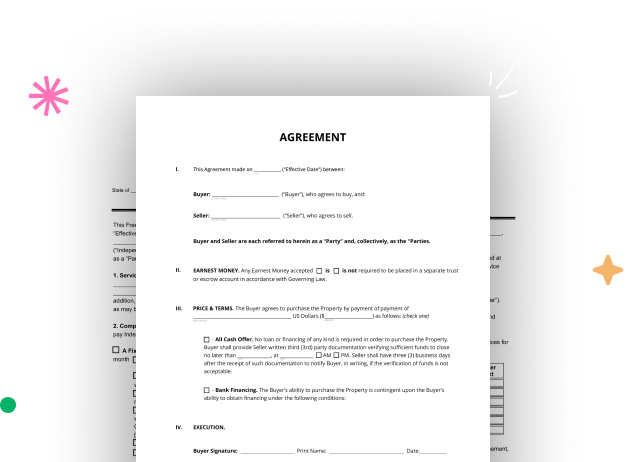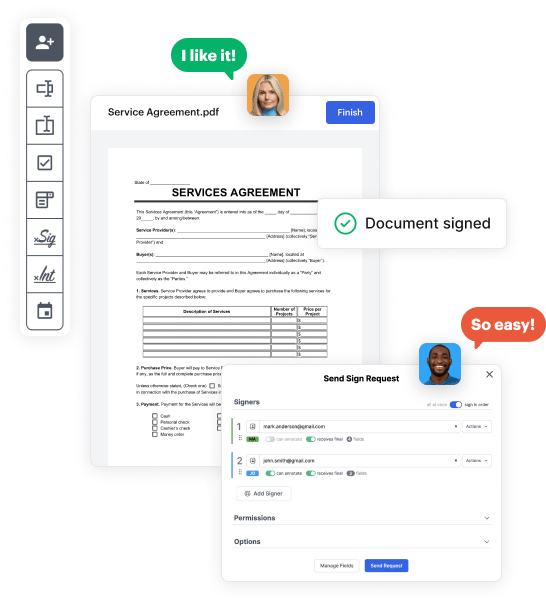

Visit the DocHub website and register for the free trial. This gives you access to every feature you’ll require to create your Massachusetts Rental Law with no upfront cost.
Log in to your DocHub account and navigate to the dashboard.
Hit New Document in your dashboard, and choose Create Blank Document to design your Massachusetts Rental Law from scratch.
Place various elements such as text boxes, radio buttons, icons, signatures, etc. Arrange these fields to match the layout of your form and assign them to recipients if needed.
Organize your form effortlessly by adding, repositioning, deleting, or combining pages with just a few clicks.
Transform your freshly designed form into a template if you need to send many copies of the same document numerous times.
Send the form via email, share a public link, or even post it online if you want to collect responses from a broader audience.